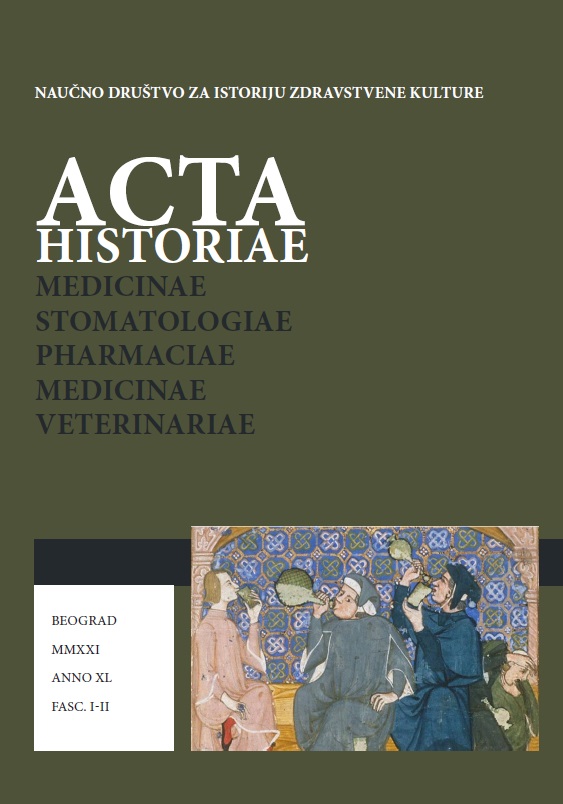THE ROLE OF THE SERBIAN CHURCH IN THE IMMUNIZATION OF THE POPULATION DURING THE FIRST HALF OF THE 19th CENTURY
THE ROLE OF THE SERBIAN CHURCH IN THE IMMUNIZATION OF THE POPULATION DURING THE FIRST HALF OF THE 19th CENTURY
Author(s): Vuk DautovićSubject(s): Social history, Religion and science , 19th Century
Published by: Naučno društvo za istoriju zdravstvene kulture
Keywords: vaccination; smallpox; Serbian Orthodox Church; Principality of Serbia; 19th century
Summary/Abstract: In the first decades of the 19th century, along with the formation of the national state, a national church organization was constituted. Public health, control of infectious diseases and sanitation were also in their infancy, and since the 1830s, a legal framework for vaccinating the population against smallpox has been in place. The various then existing healing practices between the magical and the religious are gradually giving way to modern medicine. Suspicion of vaccination, which was an already known practice in the Balkans in the 18th century, has affected epidemics and their scale. In the first half of the 19th century, the Serbian church organization played a very active role in popularizing vaccination, but also in its implementation. For the first time in recent history, along with the role in religious life, the church became a mobilizing social force that modernized the attitude of the contemporary society towards health, leading it to accept immunization against infectious diseases. Numerous sanitary regulations established at this time radically changed old habits and religious customs, such as funerals as a complex religious and social ceremony. Circulars of Serbian metropolitans precisely determined and ordered the clergy to encourage vaccination. These means are fully incorporated into church life from sermons as old moral-didactic forms of communication to penance or excommunication from the Holy Sacrament of Marriage for those who have not been vaccinated. Knowing the role of the Serbian church in the early 19th century affirming the immunization of the population, emancipating it in accordance with modern health science, can be useful as an existing and historically tested model of socially beneficial action. Vaccination of almost the entire population against this vicious disease before the end of the 19th century produced sporadic, small-scale epidemics, during the First World War and the 1970s.
Journal: Acta historiae medicinae, stomatologiae, pharmaciae, medicinae veterinariae
- Issue Year: 2021
- Issue No: 40
- Page Range: 38-48
- Page Count: 11
- Language: English

